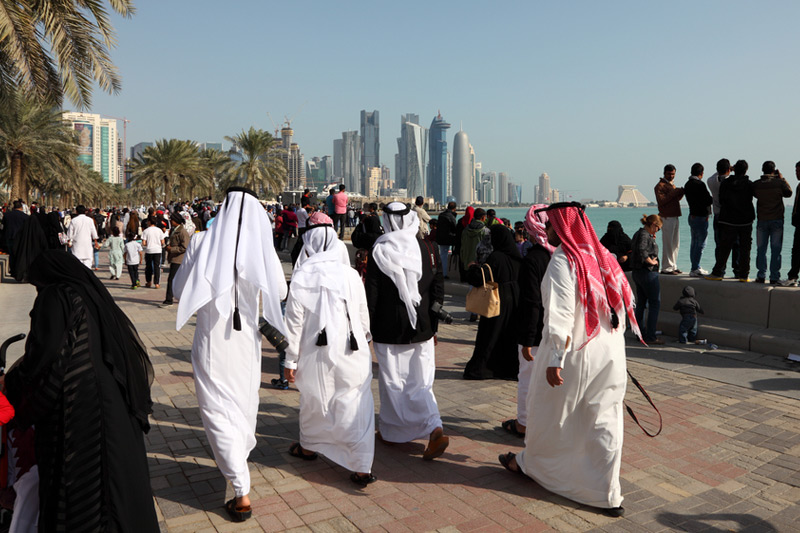(Bloomberg) -- The meltdown in oil markets is turning back the economic clock for Saudi Arabia, putting it on track for the deepest contraction in two decades with a budget deficit approaching levels last seen after the crash in crude four years ago.
Already under lockdown to contain the spread of the coronavirus pandemic, the world’s largest crude exporter is bracing for a double impact from the oil rout and unprecedented production cuts negotiated by OPEC and its allies. With Brent trading close to $20 a barrel, or almost a quarter of the level Saudi Arabia needs to balance its budget, offsetting the economic pain from the crisis could further stretch public finances.
“This has changed everything,” said Monica Malik, chief economist at Abu Dhabi Commercial Bank. “So much of the recent recovery was based on the fact that the oil price had been above $50-$60, providing support to economic activity, and that’s just been decimated.”
The latest oil setback presents difficult choices for Crown Prince Mohammed bin Salman, whose economic transformation plans already risked budget cuts as government revenue was suffering from the pandemic and plummeting energy prices. The kingdom now faces other mounting challenges: the coronavirus is shutting down vast swaths of the $779 billion economy and unemployment is poised to spike as businesses struggle to survive.
Analysts say they can hardly cut their forecasts fast enough. Gross domestic product could shrink more than 3% this year in what would be the first contraction since 2017, according to Malik.
Meanwhile, the government’s budget deficit could widen to 15% of economic output, said Mohamed Abu Basha, head of macroeconomic analysis at investment bank EFG Hermes in Cairo. The fiscal shortfall reached 4.5% last year after peaking at just over 17% in 2016, according to the International Monetary Fund.
The collapse on Monday in the price of West Texas Intermediate crude below zero has little direct impact for Saudi Arabia, since it sells only about a 10th of its oil to the U.S. The kingdom’s fate is much more closely tied to the price of global benchmark Brent which is also falling, in part because of low U.S. prices.
“Yesterday’s price slump was psychologically very important,” said Eugen Weinberg, Commerzbank (DE:CBKG) AG’s head of commodity research. “There is a possibility it will change perceptions forever.”
What’s more, U.S. President Donald Trump has said that he’ll consider blocking imports of crude from Saudi Arabia. The energy sector accounts for nearly two-thirds of its fiscal revenue.
Ricardo Hausmann, an economist at Harvard University, has compared the situation facing Saudi Arabia to “war being fought on at least two fronts,” according to a recent presentation seen by Bloomberg that outlined for officials the dual hit from the coronavirus pandemic and lower oil prices.
“Each shock in itself is huge,” Hausmann wrote. “Both at the same time makes things much more complex.”
©2020 Bloomberg L.P.
